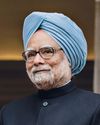With the Supreme Court reducing its powers, violators will get away easily.

If Indian economic regulators were birds of prey, then the Competition Commission of India (CCI) was the eagle, the king of the skies. If you were in its grasp, you paid for it dearly.
Last month, the Supreme Court of India clipped the CCI's claws.
The appeal in the Supreme Court was brought by the manufacturers of Aluminium Phosphide Tablets, an oral pesticide. For eight years, four manufacturers of APTs (one of them dropped out in between) had quoted identical prices in response to tenders floated by the Food Corporation of India, or collectively abstained from bidding.
The Commission found them guilty of collusion, an offence under Section 3 of the Competition Act 2002, and fined the three remaining players a total of over Rs 315 crore. Now, neither the Competition Appellate Tribunal (COMPAT) nor the Supreme Court found them not guilty of the offence. However, in penalising them, it adopted a novel approach with specious reasoning, bringing down the penalty to around Rs 10 crore for all the three companies cumulatively.
The Most-feared Regulator
But some background first. The CCI compared to its peers, had an unenviable job. Unlike the Securities and Exchange Board of India, it does not have a monitoring mechanism to survey potential violators. Nor, like the Reserve Bank of India, does it have a regulatory stranglehold over its hemisphere that compels acquiescence with its diktats.
What it had, instead, was the power to punish. And punish it did. Be it the Rs 630 crore fine on real estate major DLF for saddling some of its flat-buyers with unilateral and unfair changes to their flat-purchase agreements, the cumulative penalty of Rs 6,714 crore on 10 cement majors for colluding to keep prices artificially high, or the Rs 2,545-crore penalty on 14 automobile manufacturers for making spare-parts prohibitively expensive while prohibiting buyers from purchasing them from the open market at lower prices.
Diese Geschichte stammt aus der July 16, 2017-Ausgabe von Business Today.
Starten Sie Ihre 7-tägige kostenlose Testversion von Magzter GOLD, um auf Tausende kuratierte Premium-Storys sowie über 8.000 Zeitschriften und Zeitungen zuzugreifen.
Bereits Abonnent ? Anmelden
Diese Geschichte stammt aus der July 16, 2017-Ausgabe von Business Today.
Starten Sie Ihre 7-tägige kostenlose Testversion von Magzter GOLD, um auf Tausende kuratierte Premium-Storys sowie über 8.000 Zeitschriften und Zeitungen zuzugreifen.
Bereits Abonnent? Anmelden

TECH, SET, GO!
With up to 30 tech start-ups looking to go public, the year promises to be a turning point for India's thriving start-up ecosystem

CAUTION AHEAD
A series of events in the first few weeks of the New Year could shape the trajectory of the equity markets, especially the Trump administration's policies

THE GENTLEMAN-SCHOLAR PM
IN EVERY ROLE HE HELD, BE IT FINANCE MINISTER OR PRIME MINISTER, SINGH REMAINED OPEN-MINDED AND CONSTANTLY SOUGHT NEW IDEAS

THE COMPLETE ECONOMIST
THE MANMOHAN SINGH ERA WILL GO DOWN IN HISTORY AS THE ONE THAT CHANGED THE IMAGE OF INDIA, NOT MERELY IN THE ECONOMIC SPHERE, BUT IN EVERY OTHER ASPECT

"Inaction is worse than mistakes"
What was the problem you were grappling with?

TEEING OFF WITH TITANS
BUSINESS TODAY GOLF RESUMES ITS STORIED JOURNEY WITH THE 2024-25 SEASON OPENER IN DELHI-NCR. THERE ARE SIX MORE CITIES TO COME

AI FOOT FORWARD
THE WHO'S WHO OF THE AI WORLD GATHERED AT THE TAJ MAHAL PALACE IN MUMBAI TO DELIBERATE THE TRANSFORMATIVE IMPACT OF AI ON INNOVATION, INDUSTRIES, AND EVERYDAY LIFE.

Decolonising the Walls
ART START-UP MAAZI MERCHANT IS ON A MISSION TO BRING INDIA'S FORGOTTEN ART BACK HOME

"I'm bringing Kotak under one narrative, one strategy, one umbrella”
Ashok Vaswani is a global banker who spent most of his career overseas at institutions like Citi Group and Barclays, among others.

CHOOSING THE CHAMPIONS
The insights and methodology behind the BT-KPMG India's Best Banks and NBFCs Survey 2023-24.